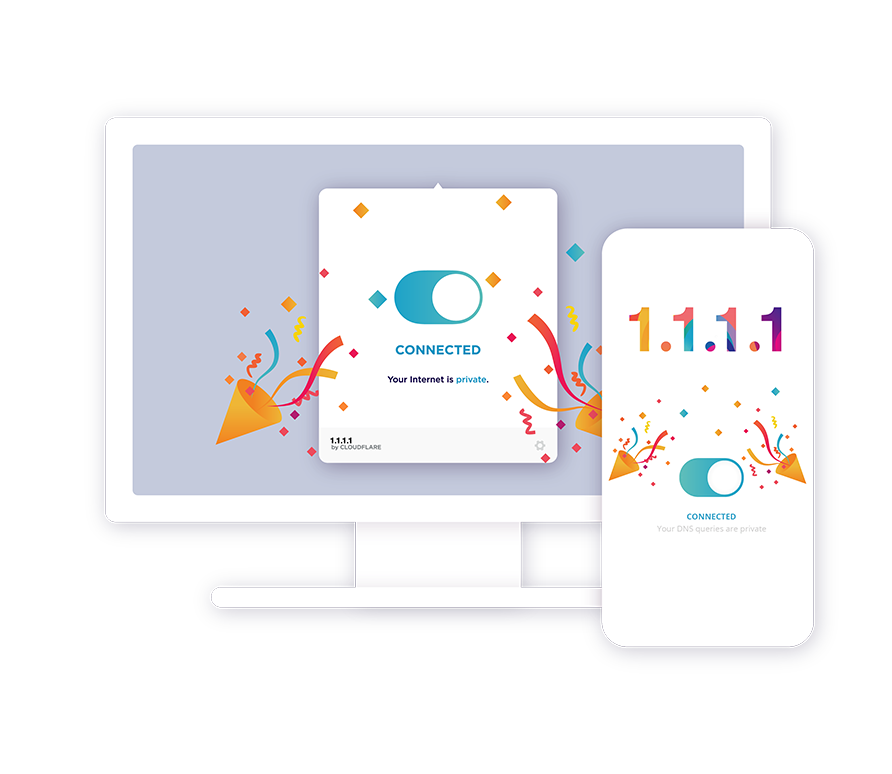
Why You Should Switch to the Cloudflare 1.1.1.1 DNS Right Now
DNS stands for Domain Name System. It is one of the most crucial features of the Internet, yet few people know what it is, and even fewer understand how it works. And I would venture to add that most do not realize that it affects speed and the range of privacy. If you do not choose a DNS widely, and most do not, then your searches and more amy not be private and some DNS servers actually sell your info about searches and more!
So if you want more spedd and definitly want to protect your privacy, I found a new DNS that you should use right now!
What DNS Does
DNS is the system that translates between IP Addresses and the standard domain names we know, like blokt.com. Conceptually, DNS is a big table that shows the IP Address corresponding to any domain name, and vice versa. When you enter a domain name into your browser’s search box, the browser looks up the corresponding IP Address in DNS to find the correct IP Address to connect to.
At this point, you might be wondering where there is room in a system like this for improving browsing speed and privacy. The key is that there are lots of servers your computer can connect to when it needs DNS information.
Some are faster than others. Some protect your privacy better than others. Some will filter out dangerous or family-unfriendly IP Addresses for you. Some are just there; not particularly fast or private. So the server your computer uses for DNS lookups can make a big difference.
These servers are called DNS Servers.
Why Does the DNS Server I Use Matter?
While all DNS Servers can give your computer the DNS information it needs, the resolvers are owned and managed by many different organizations. Your ISP probably has its own DNS Servers. While your ISP’s servers may only work with customers of the ISP, other DNS Servers are publicly available.
Why is a fast DNS Server important? Every time you go to a new page in your web browser, it must perform at least one DNS lookup. Many pages require several lookups. Your browser may end up doing dozens, even hundreds of DNS lookups a day. This can really add up.
Set Your DNS to 1.1.1.1 Right Now!
Unfortunately, by default, DNS is usually slow and insecure. Your ISP, and anyone else listening in on the Internet, can see every site you visit and every app you use — even if their content is encrypted. Creepily, some DNS providers sell data about your Internet activity or use it to target you with ads.
We think that’s gross. If you do too, now there’s an alternative: 1.1.1.1
Setup on PC
Setting up 1.1.1.1 takes two minutes and requires no technical skill or special software.
- Click on the Start menu, then click on Control Panel.
- Click on Network and Internet.
- Click on Change Adapter Settings.
- Right click on the Wi-Fi network you are connected to, then click Properties.
- Select Internet Protocol Version 4 (or Version 6 if desired).
- Click Properties.
- Write down any existing DNS server entries for future reference.
- Click Use The Following DNS Server Addresses.
- Replace those addresses with the 1.1.1.1 DNS addresses:
- For IPv4: 1.1.1.1 and 1.0.0.1
- For IPv6: 2606:4700:4700::1111 and 2606:4700:4700::1001
- Click OK, then Close.
- Restart your browser.
- You’re all set! Your device now has faster, more private DNS servers ✌️✌️
P.S. Some of you may want ot use this program as well. DNSJumper is a program that finds the fastest DNS for your setup. You can use the MANUAL setting to set the DNS to 1.1.1.1 as well, https://dns-jumper.en.lo4d.com/windows
Leave a comment if changing to 1.1.1.1 helped your speed.

